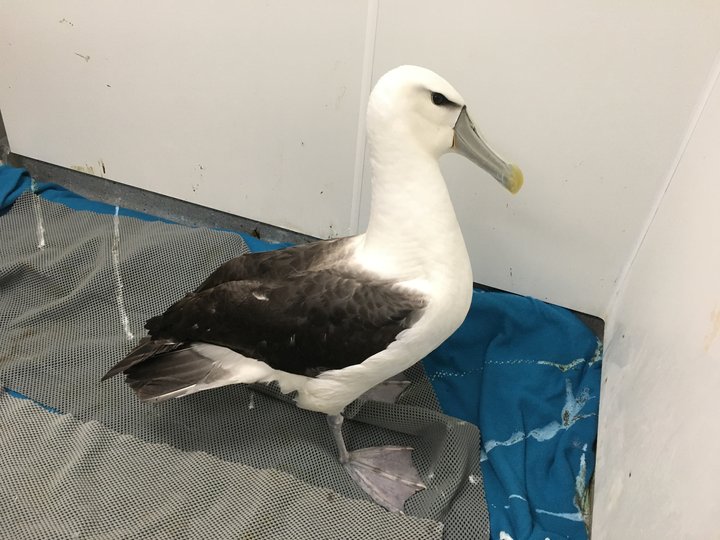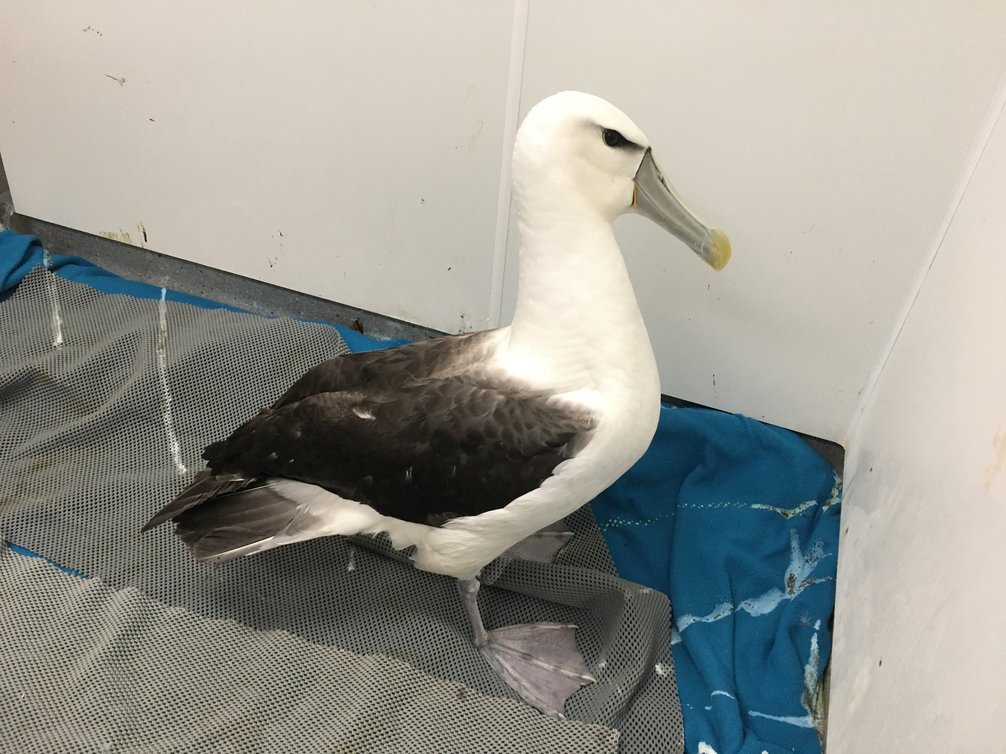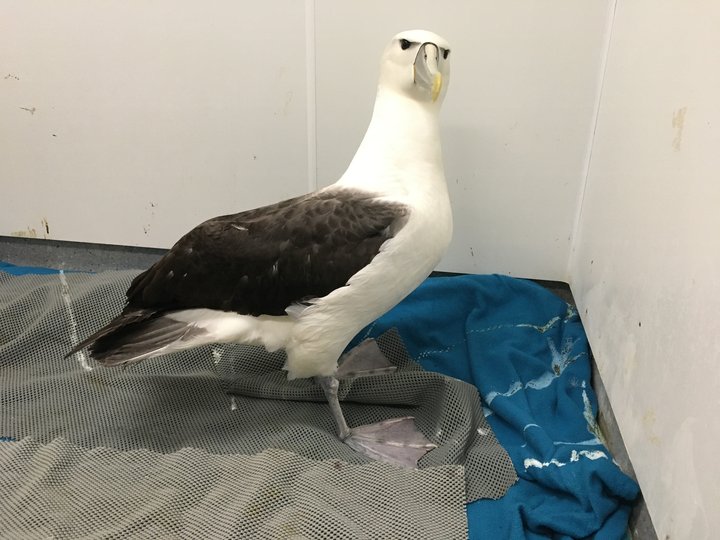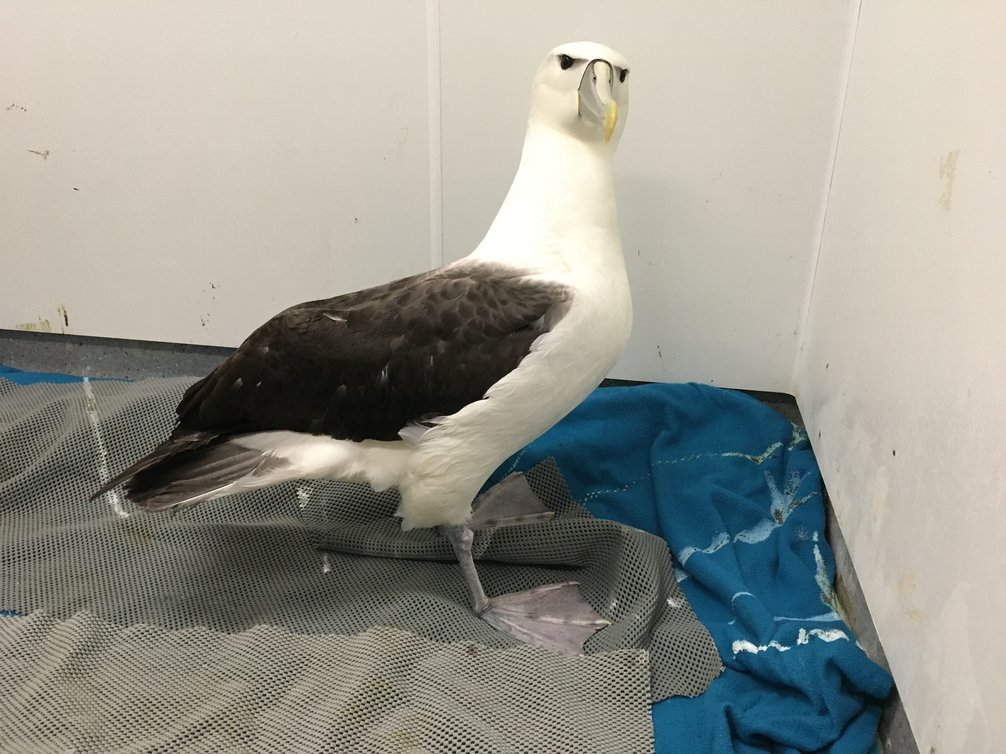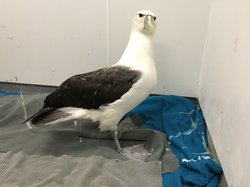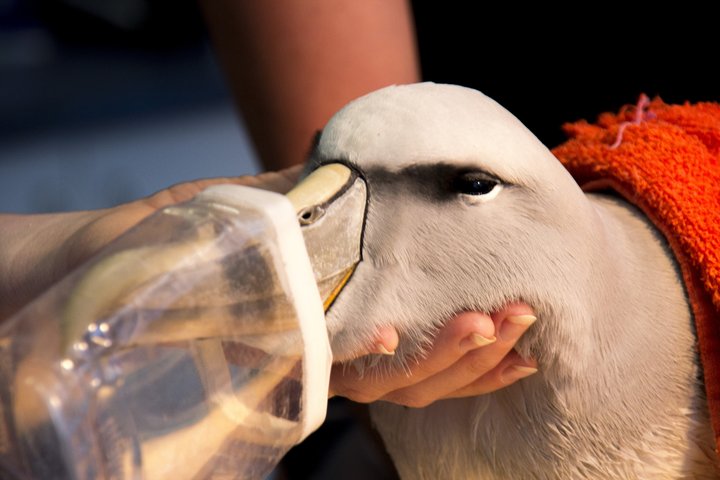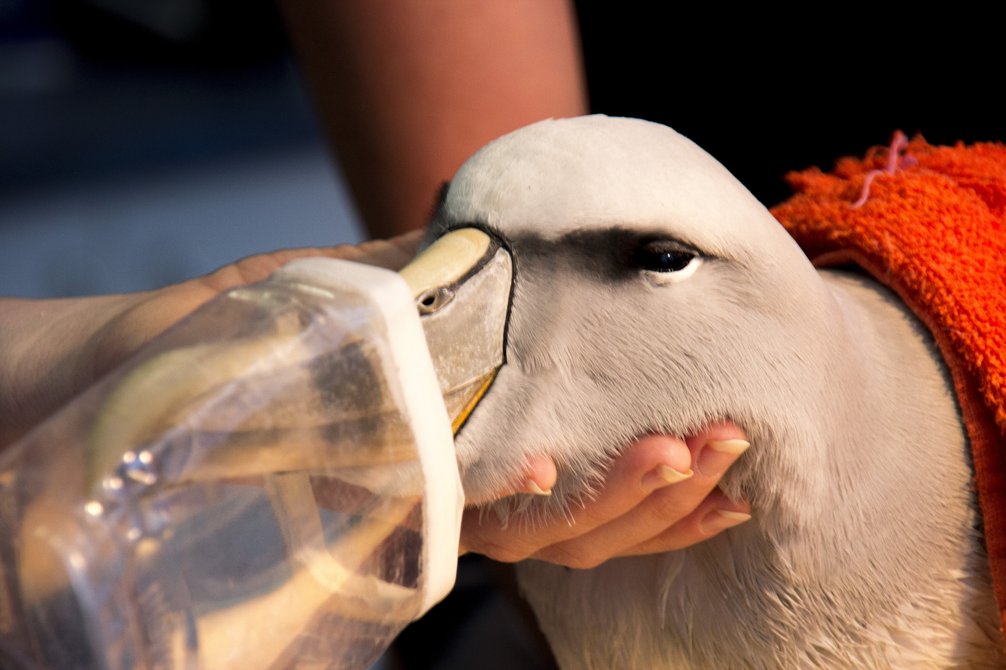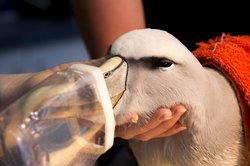The Manawatū farmer was sure this wasn’t a common bird, and called in the local Department of Conservation (DOC) office. A DOC ranger identified the bird as an albatross and brought it to Massey University's Wildbase Hospital in Palmerston North for assessment.
The beautiful bird was identified as a white-capped albatross or mollymawk. On arrival, it was too weak to stand and couldn’t hold its head up for too long. The patient was initially stabilised with fluids via an intravenous catheter and pain relief.
Once the albatross was stronger, radiographs and endoscopy ruled out broken bones or plastic foreign bodies – sadly a common finding in our large seabird patients.
The very thin but lucky bird’s only injury was a small wound to one foot. Its delicate foot webbing is perfectly adapted for swimming, but not so good for walking on dry land.
After three weeks of feeding up, fluids and gradually increasing its swimming exercise, the bird was released off the Foxton coast with the assistance of Coastguard Manawatū.
Contact Wildbase Hospital
If you find injured or sick native wildlife, contact us for help and advice.
